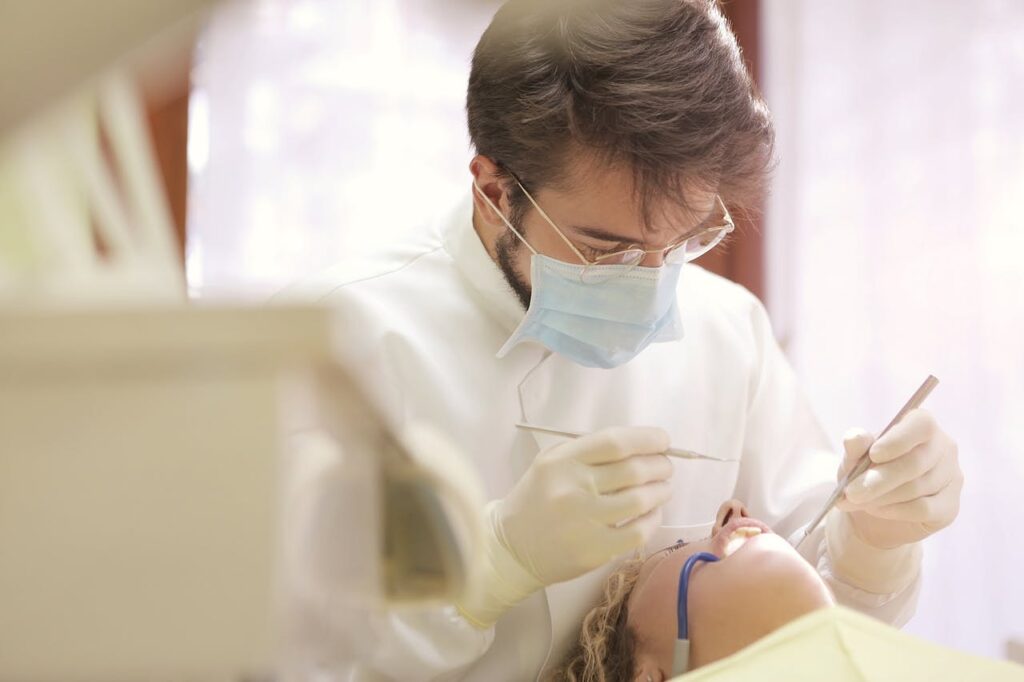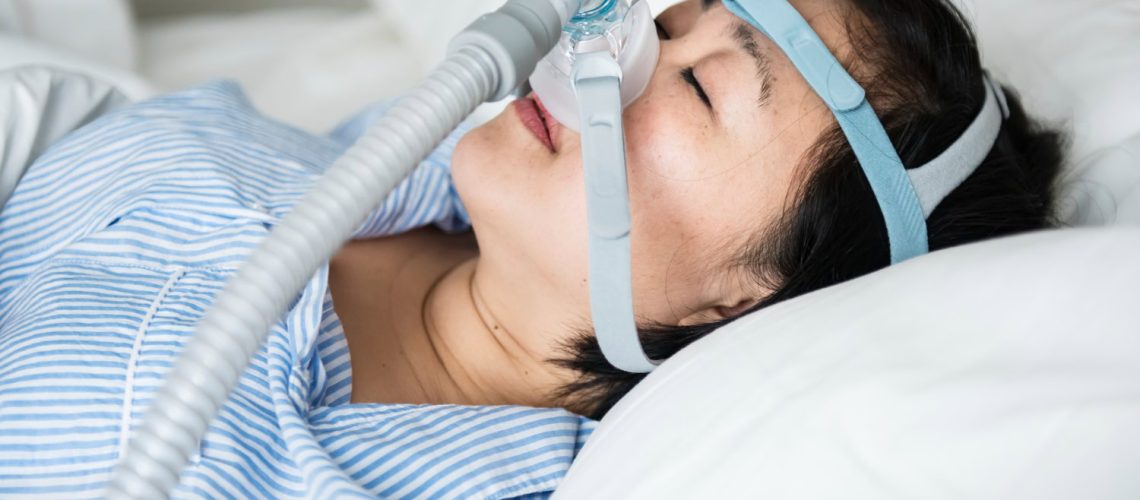Sleep apnea is a serious sleep disorder that affects millions of people worldwide. For those dealing with obstructive sleep apnea (OSA), the condition can lead to disrupted sleep, excessive daytime sleepiness, and an increased risk of other health issues such as heart disease and stroke. While many people associate sleep apnea treatment with CPAP machines and other medical devices, dentists also play a critical role in providing solutions for sleep apnea patients. If you’re searching for a sleep apnea specialist near you, consider working with a dentist who specializes in sleep medicine and oral appliance therapy.
In this article, we’ll discuss how dentists contribute to the diagnosis and treatment of obstructive sleep apnea, the benefits of oral appliances, and why personalized care from a sleep-trained dentist is essential to restoring your sleep cycle and overall health.
Understanding Obstructive Sleep Apnea: How Dentists Fit In
Obstructive sleep apnea occurs when the muscles at the back of your throat relax too much during sleep, causing your airway to become partially or fully blocked. This interruption in breathing can happen multiple times a night, leading to poor oxygen flow and interrupted sleep cycles. Over time, untreated sleep apnea can affect your blood oxygen levels, heart health, and daily functioning.
While many cases of OSA are treated with Continuous Positive Airway Pressure (CPAP) machines, oral appliances provided by dentists are another highly effective solution. Dentists trained in sleep medicine can provide oral appliance therapy to reposition the jaw and move the tongue forward, helping to keep the airway open during sleep.
Oral Appliance Therapy: A Dentist's Approach To Sleep Apnea Treatment
For individuals who find CPAP therapy uncomfortable or ineffective, oral appliance therapy can offer a convenient and non-invasive alternative. These custom-made devices are worn while sleeping and work by gently shifting the jaw forward, which helps to prevent airway blockages.
Here are the key benefits of oral appliance therapy:
Comfort: Unlike CPAP machines, oral appliances are small, portable, and custom-fitted to your mouth, making them more comfortable to wear throughout the night.
Convenience: Oral appliances don’t require electricity, making them an excellent option for travel or for those who prefer a more streamlined approach to their treatment.
Effectiveness: Research has shown that oral appliances can be just as effective as CPAP therapy for treating mild to moderate cases of obstructive sleep apnea.
Dentists trained in sleep medicine will first assess your condition and work closely with a sleep specialist to determine whether oral appliance therapy is the best treatment plan for your specific needs.
When To See A Dentist For Sleep Apnea
Not everyone with sleep apnea needs CPAP therapy. If you’re struggling with sleep problems like loud snoring, daytime fatigue, or gasping for air during sleep, and are seeking a more comfortable solution, visiting a dentist specializing in sleep disorders may be the right choice. Many sleep apnea patients prefer the simplicity and comfort of an oral appliance over the more cumbersome CPAP mask.
A sleep study is often the first step in diagnosing obstructive sleep apnea. This test can be done either in a sleep clinic or at home, where your breathing, blood oxygen levels, and sleep cycle are monitored overnight. Based on the results of your sleep study, your dentist can determine if an oral appliance would be appropriate for your condition.
Once you begin treatment, your dentist will provide personalized care and regular follow-ups to ensure the oral appliance fits correctly and effectively manages your OSA.
Collaborative Care: How Dentists And Sleep Specialists Work Together
Dentists play an essential role in the collaborative care of sleep apnea patients. Because OSA is a complex condition that can affect multiple aspects of your health, many dentists work in conjunction with sleep specialists and physicians in fields such as pulmonary medicine and internal medicine.
Patients with pulmonary disorders, for example, may experience worsened sleep apnea symptoms due to restricted airflow. A sleep specialist who understands both pulmonary medicine and sleep disorders can partner with your dentist to ensure a comprehensive approach to your treatment. This collaborative model ensures that all aspects of your health—including breathing, blood oxygen levels, and sleep patterns—are addressed.
For patients with additional sleep conditions, such as circadian rhythm disorders, sleepwalking, or night terrors, a multidisciplinary approach that includes both dental care and sleep medicine is crucial.
Critical Care And Sleep Apnea: What Dentists Should Know
Dentists who specialize in sleep apnea understand the broader health implications of untreated OSA. Over time, obstructive sleep apnea can contribute to serious health conditions, including heart disease, hypertension, stroke, and diabetes. That’s why it’s important for patients to receive timely diagnosis and intervention.
For patients with critical care needs, oral appliance therapy may help alleviate sleep apnea symptoms, improving overall oxygen flow and sleep quality. For these patients, managing sleep problems is vital to preserving long-term health and reducing the risk of further complications.
How To Choose The Right Dentist for Sleep Apnea Treatment

Here’s how to ensure you choose the right dentist to manage your sleep apnea:
1. Look for a Dentist Specializing in Sleep Medicine
Not all dentists are equipped to treat sleep apnea. Look for a dentist who has received advanced training in sleep disorders and oral appliance therapy. These dentists will be certified in sleep medicine and have a deeper understanding of how oral appliances can help manage obstructive sleep apnea.
Check the dentist’s credentials, memberships in professional organizations such as the American Academy of Dental Sleep Medicine (AADSM), and any additional qualifications related to sleep apnea treatment.
2. Verify Their Experience with Sleep Apnea Patients
Experience matters when it comes to treating complex conditions like sleep apnea. Ask potential dentists about their experience working with sleep apnea patients and how many successful cases they’ve handled. An experienced dentist will know how to customize treatment plans based on your unique condition, medical history, and sleep study results.
Additionally, ensure the dentist works collaboratively with other healthcare professionals, such as sleep specialists, pulmonologists (who specialize in pulmonary disorders), and physicians in internal medicine, to offer comprehensive care.
3. Check Reviews and Testimonials
Patient reviews can provide valuable insights into the dentist’s expertise and patient care quality. Look for reviews specifically related to sleep apnea treatment and oral appliance therapy. Positive testimonials from patients who experienced relief from sleep problems like snoring, disrupted sleep cycles, and daytime sleepiness are good indicators that the dentist has successfully treated sleep apnea.
4. Inquire About Oral Appliance Therapy
If you’re looking for an alternative to CPAP therapy, oral appliance therapy may be the best option for you. During your consultation, ask the dentist about their experience providing custom oral appliances for sleep apnea treatment. These appliances should be tailored to fit your mouth comfortably and effectively move your jaw forward to prevent airway blockages.
Ensure the dentist takes a personalized approach, considering your specific sleep problems, any related pulmonary disorders, and critical care needs. Your dentist should also offer regular follow-ups to ensure the appliance continues to work effectively.
5. Ask About Collaboration with Sleep Specialists
Sleep apnea often requires a multidisciplinary approach, especially in more severe cases. A well-qualified dentist should collaborate with sleep specialists and other healthcare providers to ensure you receive the best treatment. If you haven’t already undergone a sleep study, the dentist may refer you to a sleep specialist who can assess your blood oxygen levels, breathing patterns, and sleep cycle disruptions to confirm a diagnosis.
Once diagnosed, the dentist will work closely with your physician or pulmonary medicine specialist to create a tailored treatment plan that addresses your specific condition.
How Elite Smiles Can Help
At Elite Smiles, we’re proud to offer cutting-edge solutions for patients dealing with obstructive sleep apnea and other sleep disorders. Our experienced dentists specialize in oral appliance therapy, providing custom solutions tailored to your unique needs.
We work closely with sleep specialists to ensure that your treatment is part of a comprehensive plan that addresses all aspects of your health. Whether you’ve been diagnosed with obstructive sleep apnea, suffer from pulmonary disorders, or are struggling with other sleep problems, we’re here to provide the personalized care and attention you deserve.
Take Control Of Your Sleep Health Today
If you’ve been diagnosed with obstructive sleep apnea or suspect you may have a sleep disorder, don’t wait to seek treatment. A visit to a sleep-trained dentist can be the key to managing your condition and improving your quality of life. Oral appliance therapy offers a comfortable and effective alternative to traditional CPAP machines, and with Elite Smiles, you’ll receive personalized care every step of the way. Contact us today to schedule a consultation and learn more about how our expert team can help you achieve better sleep and overall health.


